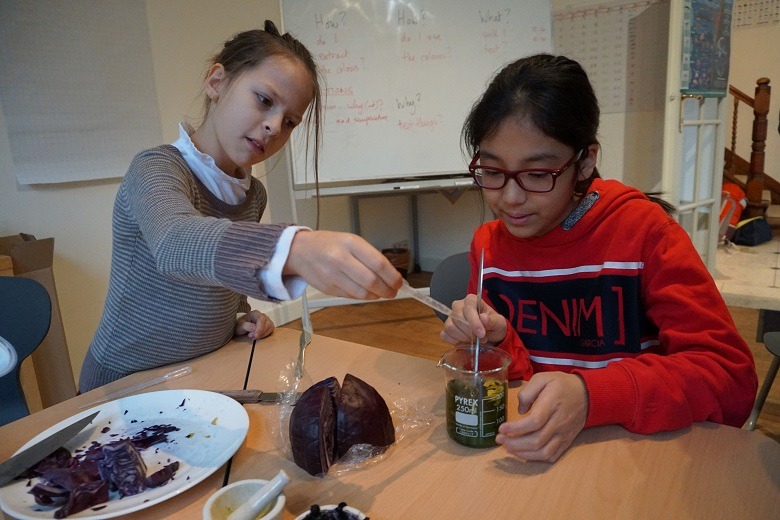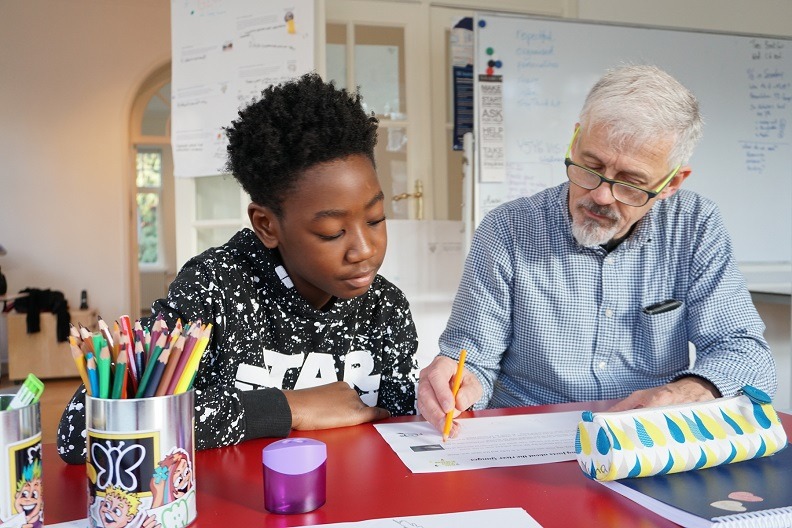It’s estimated that 85% of the jobs that children growing up today will have as adults don’t currently exist. This dizzyingly rapid pace of change puts parents in a difficult situation. Because how do you prepare your kids for the future when it’s so unclear what exactly that future will bring? Pascale Hertay, director of the BEPS International School in Brussels, says the answer is simple: Trust educators.
“Continual reference to current research combined with reflection helps us to know how children learn more effectively,” Hertay, pointing out that the school’s learning approaches and methods are based on the latest brain research findings. “We know where they’re going, which is a different world from the one in which we grew up ourselves, and that’s where we want to bring them.”
At BEPS, this future-minded approach means emphasising active learning, with students taking active ownership of the learning and the school’s tight-knit team of 37 educators acting as facilitators for the learning process. This approach also means that children engage with learning materials in real life and beyond the classroom whenever possible.
A recent robotics workshop for instance took secondary students to the Apple store in Brussels’ Louiza district. By the end of the morning, the children had animated a LED matrix and programmed a robot to perform a dance and navigate an obstacle course.
“We provide authentic learning experiences that help children not just acquire knowledge, but also develop skills and attitudes that will help them be successful later in life. These experiences are designed to make them curious and encourage them to take responsibility for their environment, for the planet,” says Hertay, adding that international mindedness is one of the main goals of the leading International Primary Curriculum BEPS follows for its primary school.

Parents have appreciated this approach – so much so that a couple of years ago they started engaging in conversations with the school saying that, their children had flourished under the approach of the BEPS primary school, suggesting BEPS develop a secondary school offering something similar.
After carefully examining the existing offer of schools, Hertay and her colleagues realised the parents were right. “There were family schools but they didn’t have our learning approach, and although there were schools with our learning approach they were big schools,” she explains. “So that combination of the caring and individual learning support of a family-size school and the quality of the rigorous curriculum we provide is where we are unique.”
Now that the secondary school has become a reality (it’s located just a short walk from the building in which the pre-school and primary school are housed), toddlers who join today will be able to complete their entire K-12 education at BEPS. The secondary school is currently a candidate International Baccalaureate school and is en route to becoming an authorised International Baccalaureate school next year.
This curriculum, Hertay explains, will give BEPS graduates access to universities around the world. “That’s very important for an international school with a population like ours, with families who are in Belgium for a few years and then go back to their home countries. With the IB, students can be sure to access universities in their home countries or elsewhere,” she says.
BEPS are actively setting up partnerships with like-minded international schools – not just in Brussels but also in cities further afield like Beijing and Dubai. “We believe in collaboration, so we need to model that to our students,” says Hertay. “We will set up common projects around solar panels or climate change, for instance, so our students can exchange experiences with students in other parts of the world and understand the impact of different environments.”
The school approach to assessment is also linked to the unique BEPS vision, putting the power of learning in the hands of the students. Andrew Mitchell, BEPS curriculum coordinator and teacher explains “It’s an ongoing process, identifying learning goals, measuring achievement, giving feedback and setting new goals. Assessment should drive the learning forward and we should avoid seeing final tests and exams as the end point of learning.”
“Part of our approach is that our learning is authentic and it exists not just within the confines of school, but in the real world,” Mitchell explains. “So engagement with the world is probably the key measure of success for us. Do they use the skills we’ve helped them develop here when they go through the doors, when they’re taking action out there – whether it be cleaning up the beach or creating a new robot?”
Being a student at BEPS means taking charge of your future, Hertay adds. “We want for them to discover what they’re passionate about and develop that passion. Of course they’ll have the required basic foundations in the various learning areas, but we really want to give them the tools, the confidence to be successful in whatever profession they wish to pursue.”
By Linda A. Thompson

